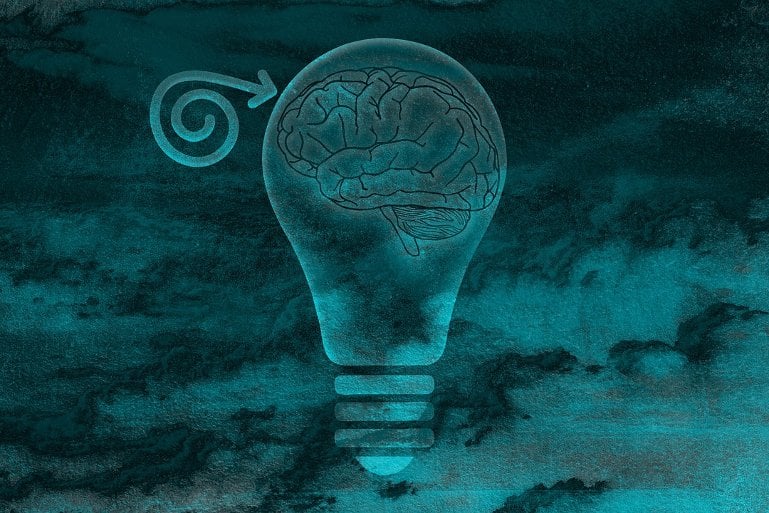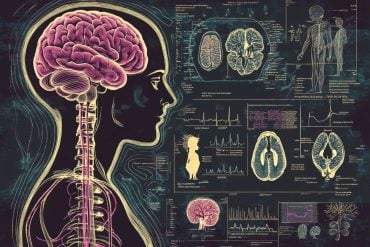Summary: A newly proposed learning method for those on the autism spectrum accelerates the learning process and can help to improve visual perception.
Source: Tel Aviv University
A new study from Tel Aviv University proposes a new learning method for people with autism that may accelerate the learning process and even significantly improve capabilities in terms of visual perception.
According to the researchers, improving the perceptual capacity of people with autism is often a challenge, which usually requires long and tedious training alongside additional learning challenges that characterizes autism, such as the ability to generalize learning to new situations.
The new method proposed by the researchers is based on using “memory flashes,” which consists of exposing a person for just a few seconds to a task that has already been learned.
In comparison to standard teaching practice which reinforce length and repetition of new skills, the new method demonstrated success in improving both the visual perception capabilities and the generalization of learning—that is, excelling in a similar task in conditions they have not learned before—for people with autism.
The study was conducted by doctoral student Shira Klorfeld-Auslender and Prof. Nitzan Censor from the School of Psychological Sciences and the Sagol School of Neuroscience at Tel Aviv University, in collaboration with Prof. Ilan Dinstein and his team from Ben-Gurion University.
The study was published in the journal Current Biology.
Prof. Censor explains that “in my laboratory we focus on the study of learning in humans, and already today we know that a large part of learning does not happen in formal training settings but afterwards, in processes of assimilation and reinforcement of memory that occur ‘offline’; for example, when our brain is asleep.
“However, standard teaching methods still advocate an approach where longer practice equals better learning: if you want to play the piano, you should practice playing the piano for many hours every day until the playing becomes second nature to you.
“We have identified an alternative learning mechanism that uses ‘memory flashes’—a brief exposure to a task that has already been learned—in order to assimilate and generalize skill developed.”
In the study, the research team examined about 30 high-functioning adults with autism who were asked to learn a visual task (for example, identifying the direction of lines that appear for a few milliseconds on the screen).
However, instead of repeating the task for a long time each day, the examinees in the main experimental group learned the task in depth on the first day, and in the following days were exposed to the visual stimulus for only a few seconds.
At the end of the process, although the study participants studied the task for a minimal amount of time, their performance improved significantly, by about 20–25%, similar to multiple-repetition learning and similar to the achievements of subjects without autism.
Moreover, even when presented with a task under new, unlearned conditions (for example, when the stimulus learned is in a new location), the examinees who learned the memory flash method performed better than those in the control group; that is, they knew how to generalize the skills learned in the first task.
The participants’ success in generalizing the learning to other situations is considered quite significant, as these are skills that people with autism have great difficulty with.
“We have already proven in previous studies that processes of learning assimilation can be improved through flashes of memory,” says Prof. Censor.

“We have shown that it does not take prolonged practice time to assimilate the task—it is enough to flash it for a few seconds to stimulate the relevant brain network, and the brain will then assimilate the material on its own. In this case we tested people with autism.
“People with autism often have difficulty learning and generalizing repetitive learning, that is, using tools that have also been learned in new tasks. Through short flashes of visual stimulus in the task learned, we were able to produce learning that is identical to repetitive learning in terms of its effectiveness; meaning, we significantly shortened the learning time.
“The added value is the ability to generalize: the examinees performed a task under new conditions, as if they had fully learned it.”
According to Prof. Censor, the new method may have significant potential implications in a wide range of areas. “The new study could pave the way for more meaningful approaches to learning for people with autism, in a wide variety of tasks. In addition, the method may help in rehabilitation after neurological injuries, that is, in training the brain to regenerate the damaged connections, through shorter training.”
About this ASD research news
Author: Press Office
Source: Tel Aviv University
Contact: Press Office – Tel Aviv University
Image: The image is in the public domain
Original Research: Open access.
“A distinct route for efficient learning and generalization in autism” by Shira Klorfeld-Auslender et al. Current Biology
Abstract
A distinct route for efficient learning and generalization in autism
Highlights
- Brief memory reactivations induce improvements in ASD visual skill performance
- Learning efficiently generalized to an untrained visual location
- Evidence for a distinct route for efficient visual learning and generalization in ASD
Summary
Visual skill learning is the process of improving responses to surrounding visual stimuli.
For individuals with autism spectrum disorders (ASDs), efficient skill learning may be especially valuable due to potential difficulties with sensory processing and challenges in adjusting flexibly to changing environments.
Standard skill learning protocols require extensive practice with multiple stimulus repetitions, which may be difficult for individuals with ASD and create abnormally specific learning with poor ability to generalize.
Motivated by findings indicating that brief memory reactivations can facilitate skill learning, we hypothesized that reactivation learning with few stimulus repetitions will enable efficient learning in individuals with ASD, similar to their learning with standard extensive practice protocols used in previous studies.
We further hypothesized that in contrast to experience-dependent plasticity often resulting in specificity, reactivation-induced learning would enable generalization patterns in ASD. To test our hypotheses, high-functioning adults with ASD underwent brief reactivations of an encoded visual learning task, consisting of only 5 trials each instead of hundreds.
Remarkably, individuals with ASD improved their visual discrimination ability in the task substantially, demonstrating successful learning. Furthermore, individuals with ASD generalized learning to an untrained visual location, indicating a unique benefit of reactivation learning mechanisms for ASD individuals.
Finally, an additional experiment showed that without memory reactivations ASD subjects did not demonstrate efficient learning and generalization patterns.
Taken together, the results provide proof-of-concept evidence supporting a distinct route for efficient visual learning and generalization in ASD, which may be beneficial for skill learning in other sensory and motor domains.







